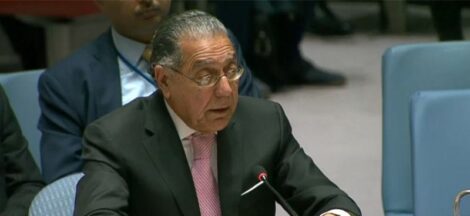Prime Minister Narendra Modi has announced the initiation of a direct flight service between India and Brunei, a move that follows his recent discussions with Sultan Hassanal Bolkiah of Brunei. This development is poised to enhance connectivity and bolster economic and cultural ties between the two nations.
The decision to establish a direct air route marks a significant milestone in the relationship between India and Brunei, both of which have been strengthening their bilateral cooperation in various sectors. The new flight service aims to facilitate easier travel for business, tourism, and academic exchanges. Officials anticipate that the direct connectivity will encourage increased trade and investment, as well as deepen people-to-people relations.
This announcement was made public following a high-level meeting between PM Modi and Sultan Bolkiah, where they also discussed a range of strategic and economic issues. The direct flight is expected to reduce travel time significantly compared to current routes that require multiple layovers. The route will not only benefit tourists and business travelers but is also seen as a step towards enhancing regional cooperation in Southeast Asia.
The introduction of this service aligns with India’s broader strategy of expanding its global connectivity and fostering closer economic relationships with key partners in Asia. This move is part of a series of diplomatic and economic initiatives aimed at increasing India’s footprint in the region. It also reflects Brunei’s interest in strengthening its ties with major economies in Asia, positioning itself as a pivotal player in regional connectivity.
The new route will be operated by one of the major airlines of India, with flights expected to commence by early next year. The decision was made after detailed discussions and negotiations involving both governments, and it reflects a shared commitment to improving bilateral relations. The Indian government has been working on expanding its international air network as part of its broader diplomatic and economic strategy.
The impact of the direct flight is anticipated to be substantial for both nations. For India, it opens up new avenues for trade and investment in Brunei, a small but strategically located country in Southeast Asia. Brunei’s economy, though relatively small, is enriched by its oil and gas resources, and the new air link is expected to facilitate greater economic engagement.
For Brunei, the direct connection with India, a rapidly growing economy, represents a significant opportunity to diversify its economic partnerships and enhance its global presence. The improved connectivity will likely lead to increased tourism, bringing more visitors from India to Brunei and vice versa, boosting local economies and fostering cultural exchanges.
In addition to economic benefits, the new flight service is expected to enhance academic and cultural exchanges between the two countries. With easier access, students and professionals from both nations will have more opportunities to engage in collaborative research, academic programs, and cultural activities, further strengthening bilateral ties.
This development is part of a broader pattern of increased regional cooperation and connectivity initiatives across Asia. Several countries in the region have been enhancing their transport networks to facilitate better integration and economic collaboration. The direct flight between India and Brunei is a clear example of how countries are leveraging improved connectivity to foster closer economic and cultural relationships.
The announcement comes at a time when both India and Brunei are seeking to expand their influence and strengthen their global partnerships. For India, the new flight service is a strategic move to enhance its engagement with Southeast Asia, a region of growing economic importance. For Brunei, it represents a significant step towards greater integration with major economies in the region.




 ₹22,000 Crore Trading Scam Uncovered in Assam
₹22,000 Crore Trading Scam Uncovered in Assam 